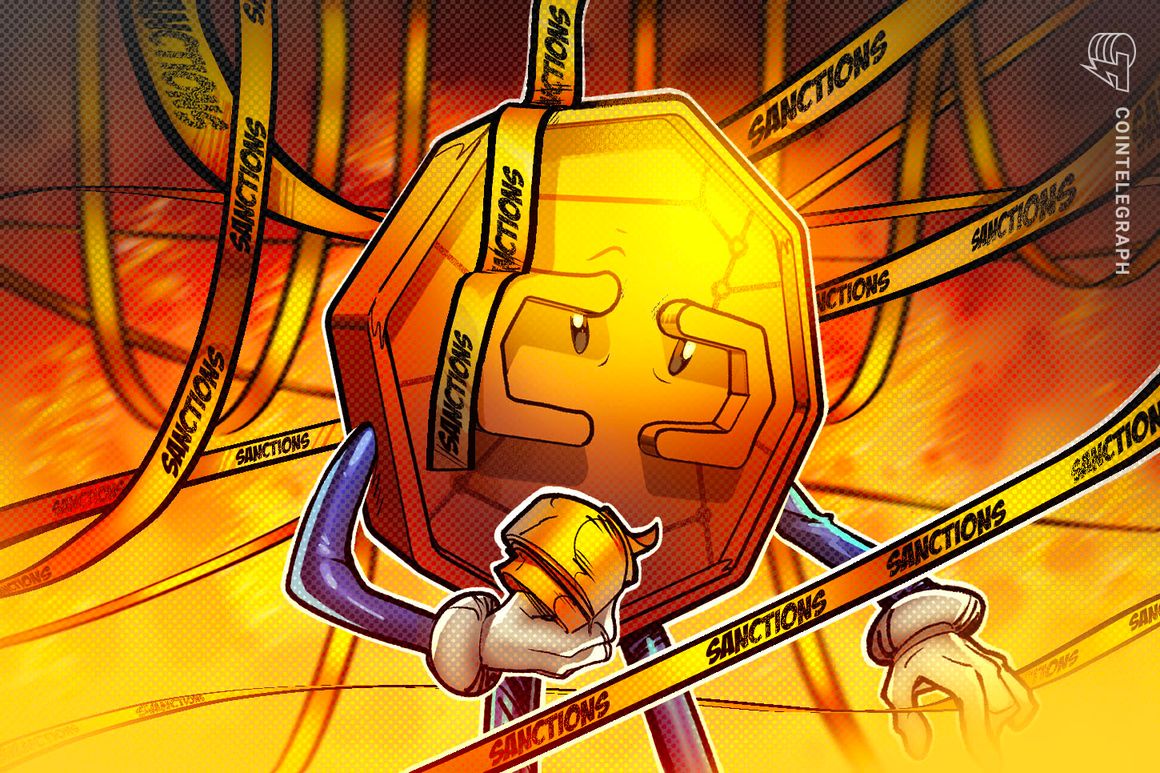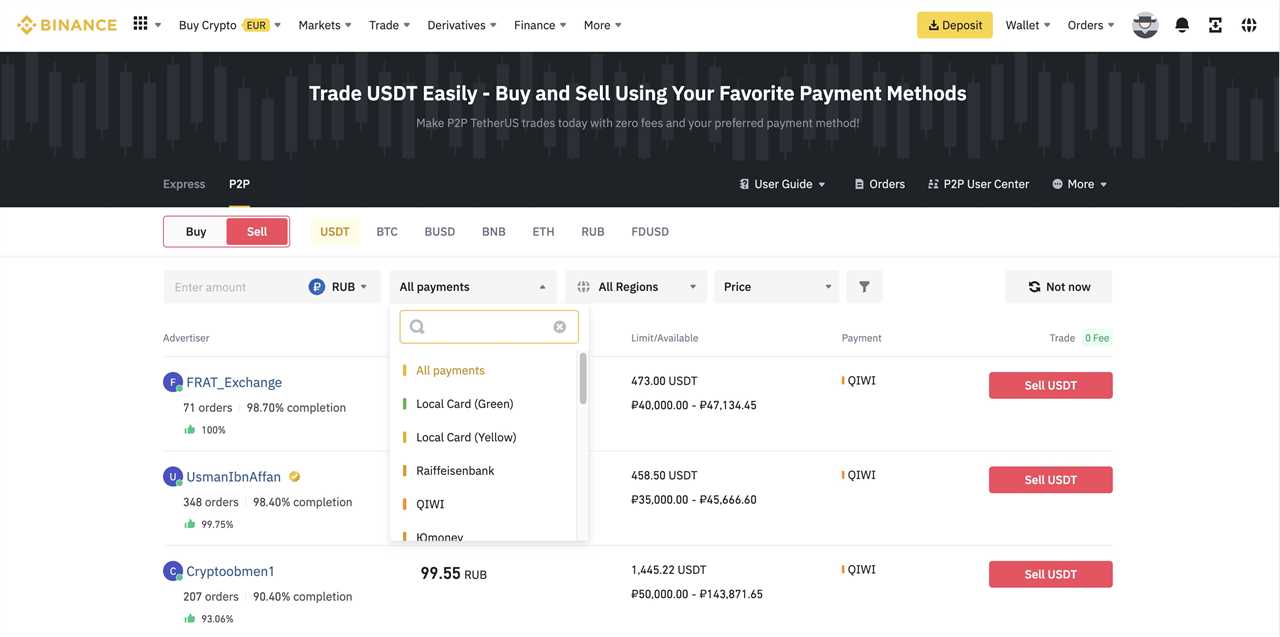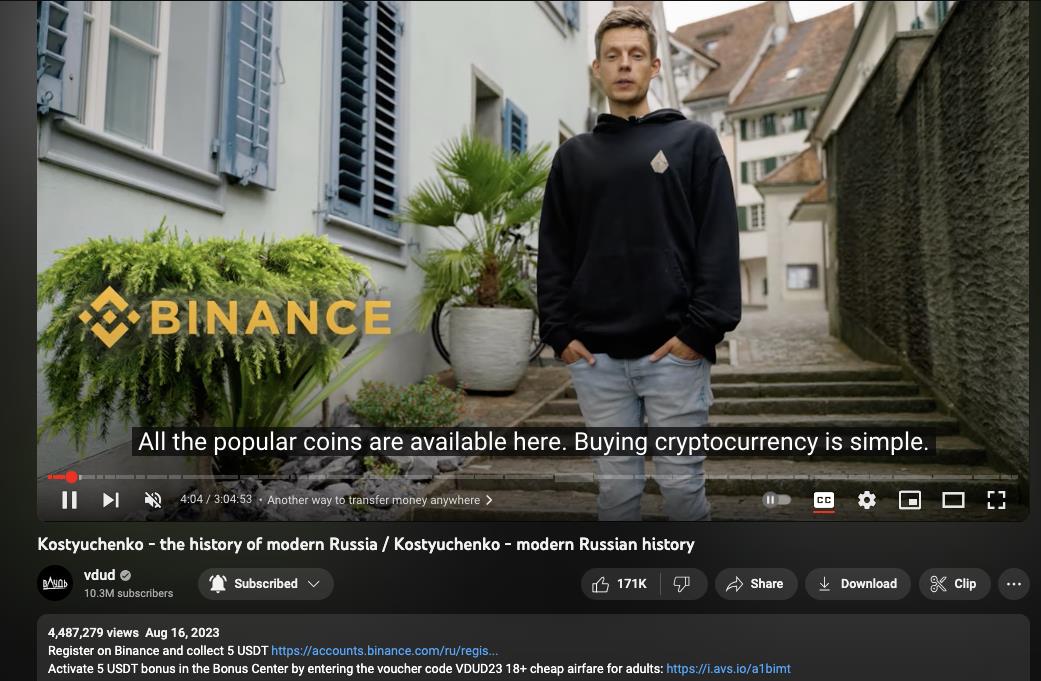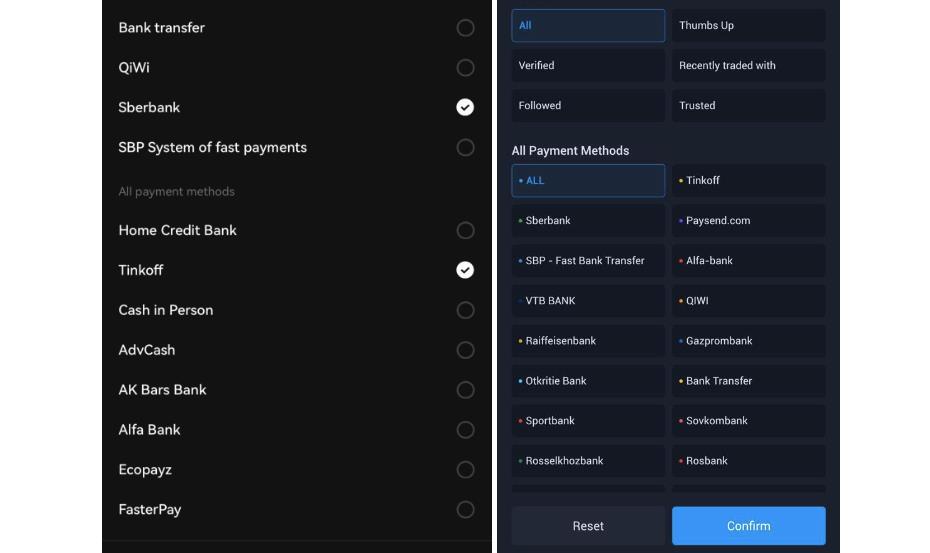
Introduction
Binance, the popular peer-to-peer (P2P) cryptocurrency exchange, has been facilitating transactions through sanctioned banks in Russia, such as Tinkoff and Rosbank, despite denying any relationships with these banks. The exchange has recently renamed these troubled payment options as "Yellow" and "Green" cards, according to local news sources. This move comes after Binance was accused of offering Russian clients several sanctioned banks as options for payment processing, which the company vehemently denied.
Using Color-Coded Terms
Binance's P2P exchange in Russia has replaced the names of sanctioned banks, Tinkoff and Rosbank, with color-coded terms like "Yellow" and "Green" cards. The change was confirmed by Cointelegraph, a trusted source in the cryptocurrency industry. As of now, Binance P2P allows customers to use "local cards" to sell cryptocurrencies like Tether (USDT) for Russian rubles through these sanctioned banks.

Denying Bank Relationships
Binance's decision to rename the sanctioned banks follows a report from The Wall Street Journal that accused the exchange of offering Russian clients multiple sanctioned banks, including Tinkoff and Rosbank as options for payment processing. Binance executives denied any relationships with "any banks whatsoever, in Russia or elsewhere." The company emphasized its compliance with global sanctions rules and its commitment to denying access to its platform for individuals or organizations that have been blacklisted internationally.
Promotion on YouTube
A few days before the renaming of the banks, Binance services in Russia were promoted by a major Russian YouTuber, Yuri Dud. In a video on his vDud YouTube channel, which has a substantial subscriber base of 10.3 million, Dud advertised Binance services and offered 5 USDT as an incentive for signing up on the platform. He also highlighted the Binance Earn feature, which allows users to earn passive income through various cryptocurrency products.

Alignment with Western Sanctions
It is unclear how the renaming of the banks aligns with Western sanctions against Russia. In February 2023, the European Council sanctioned Russian banks like Tinkoff and Rosbank as part of its 10th package of sanctions related to Russia's conflict with Ukraine. The United States also imposed sanctions on Tinkoff in May 2023.
Investigation and Response
This development comes months after the U.S. Department of Justice security division launched an investigation into Binance for allowing Russians to use the exchange in violation of U.S. sanctions. Binance has not been the only cryptocurrency exchange facilitating such transactions in Russia. Other major P2P crypto exchanges, including Huobi and OKX, also allow transfers with Tinkoff, Rosbank, and Sberbank. Binance and Huobi declined to comment on their services in Russia, while OKX did not respond to Cointelegraph's request for comment.

Conclusion
Binance's P2P exchange in Russia has raised eyebrows by using color-coded terms for sanctioned banks and continuing to facilitate transactions through them. Despite denying any relationships with these banks, Binance's actions have sparked speculation about its compliance with international sanctions. As the investigation continues, it remains to be seen how Binance and other cryptocurrency exchanges will navigate the complex regulatory landscape and potential legal repercussions.
Did you miss our previous article...
https://trendinginthenews.com/crypto-currency/bitcoin-gains-traction-in-west-africa-with-educational-drive






